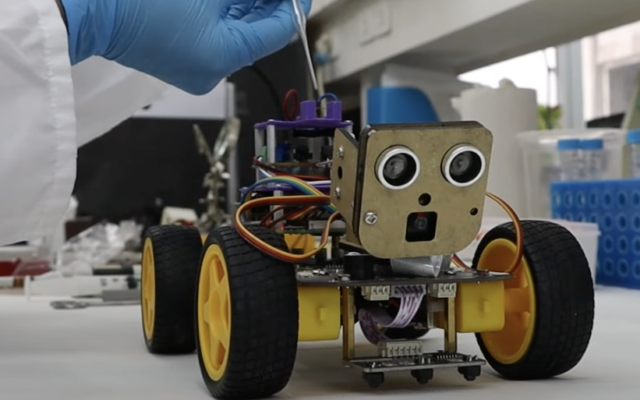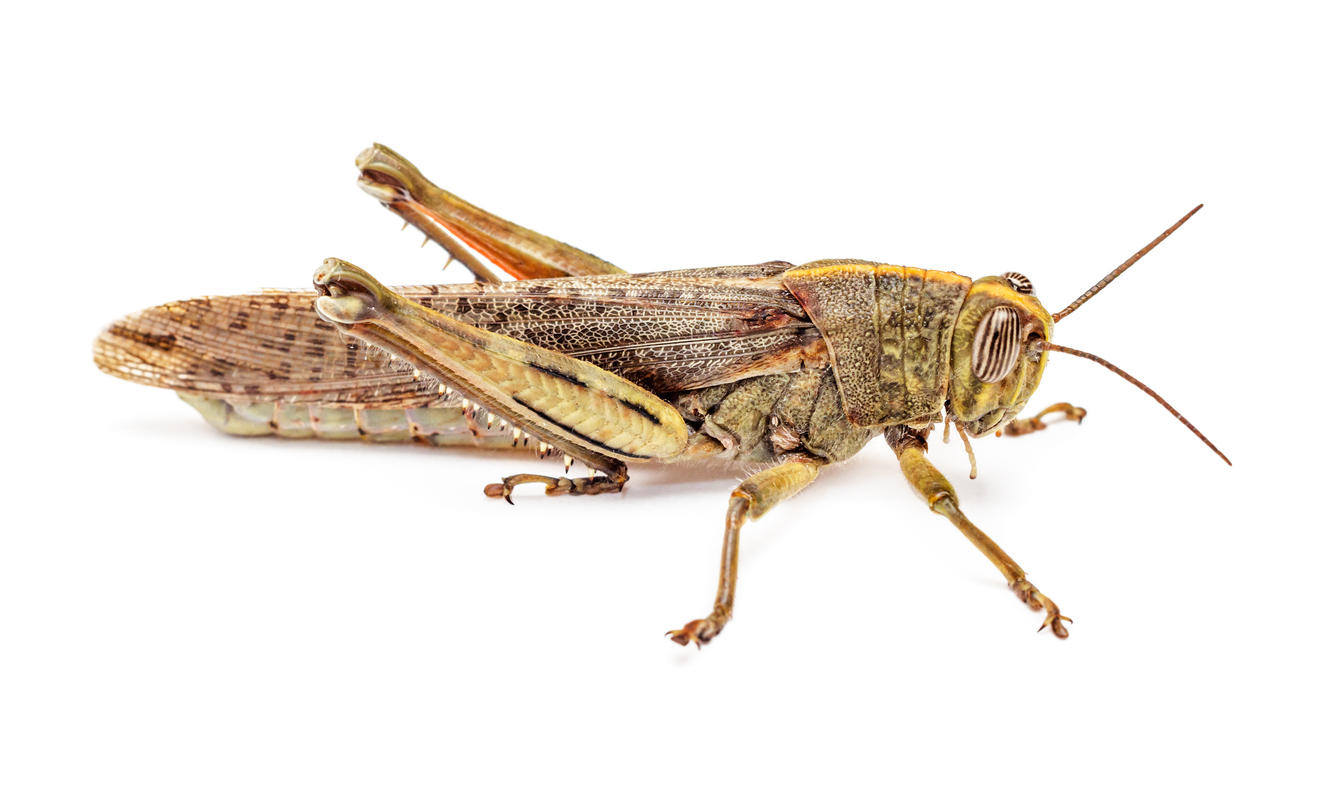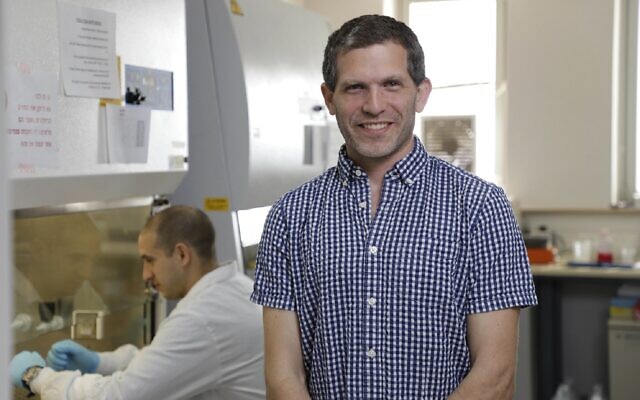Israeli robot fitted with locust antenna gains scent superpowers
Dog gone? Insect parts are so powerful they could one day replace sniffer dogs and even high-resolution cameras, Tel Aviv scientists predict

Israeli scientists have created a robot with a sense of smell stronger than any other electronic device, by wiring it with a locust’s antenna.
The new robot-locust combo, documented in peer-reviewed research, can be trained to detect explosives, drugs and diseases — and can even discern different whiskies by their smell.
The Tel Aviv University lab of Dr. Ben Maoz is a world leader in part-animal part-machine tech. Last year it connected a robot to a locust’s ear for sound-processing capability, and now it has focused on smell.
Antennae are common among arthropods — including insects — and can sense using different functions, including smell.
To develop the locust-antenna tech, Maoz and his colleagues built a robot capable of responding to signals it receives from the environment. They found a way to artificially keep the locust antenna alive and developed a method for communicating signals received by the antenna to the robot.
Maoz believes that his research could pave the way for technology that provides biological “noses” as sensors, artificial intelligence to process their data, and information for users. For example, a police officer could carry a device containing a locust antenna that generates an alert saying it has “smelled” drugs, or doctors could be told that odor signals that are un-smellable by humans suggest the presence of a certain disease.

Maoz has long been interested in humans harnessing animals’ biological sense of smell. He noted that humans already do this to an extent, for example by the use of sniffer dogs. But relying on actual animals is high-maintenance — they need training, accommodating, feeding, medical care and other forms of attention.
“I hope this could one day replace sniffer dogs at airports, and provide many other possibilities,” he told The Times of Israel.
“At the end of the day, a biological nose is more sensitive than any technologies designed to smell,” Maoz added. “So this could be put to use in new machines that use smell to identify explosives, drugs, diseases, rotten food and many other things that can be detected by odor.”

Maoz’s colleague Prof. Yossi Yovel described the experiment that is reported in the newly published study, saying: “We connected the biological sensor and let it smell different odors while we measured the electrical activity that each odor induced. The system allowed us to detect each odor at the level of the insect’s primary sensory organ.
“Then, in the second step, we used machine learning to create a ‘library’ of smells,” he continued. “In the study, we were able to characterize eight odors, such as geranium, lemon and marzipan, in a way that allowed us to know when the smell of lemon or marzipan was presented.
“In fact, after the experiment was over, we continued to identify additional different and unusual smells, such as various types of Scotch whisky,” Yovel continued. “A comparison with standard measuring devices showed that the sensitivity of the insect’s nose in our system is about 10,000 times higher than the devices that are in use today.”
Maoz is convinced that insect parts should play a major role in the evolution of electronics, and has even raised the possibility of using insect eyes as high-resolution cameras.
“Nature is much more advanced than we are, so we should use it,” he said. “The principle we have demonstrated can be used and applied to other senses, such as sight and touch. The sky is the limit.”
















No comments:
Post a Comment